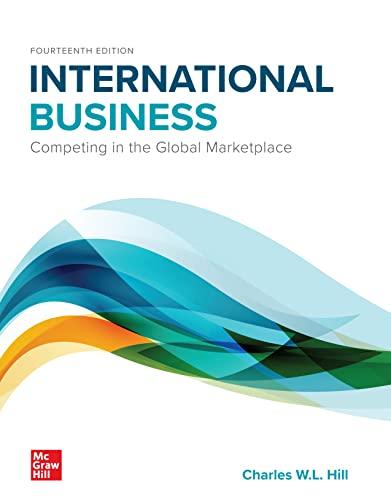Question
Developing new drugs that safely address particular medical issues without producing unpleasant or dangerous side-effects is a very long and expensive process, often taking 1015
Developing new drugs that safely address particular medical issues without producing unpleasant or dangerous side-effects is a very long and expensive process, often taking 1015 years of work and costing an average of $4 billion. The long lead time for bringing drugs to market is mostly due to the required clinical trials. Thus, drug manufacturers have to make very important, high-stakes decisions when they consider whether or not to place a new drug into the clinical trials process. Suppose scientists at Prescott Pharma have discovered a potential drug breakthrough for the treatment of Alzheimers disease, and corporate executives now need to decide whether to go forward to conduct clinical trials and seek FDA approval to market the drug. The company has spent $295 million to date in research expenses. The cost of clinical trials is expected to be $145 million, and the probability of a successful the outcome with only minor side effects is 0.15 whereas the probability of a successful the outcome with major side effects is 0.2. After the clinical trials are completed, the company may seek approval from the Food and Drug Administration (FDA) at an the estimated cost of $25 million. If the clinical trials suggested the drug produced only minor side effects, the chance of FDA approval is 0.6. Alternatively, the chance of gaining FDA approval, if the drug has major side effects, is 0.35. The market potential for the drug has been estimated as large, medium, or small, with the following probabilities and characteristics: Minor Side effects Major Side effects revenue Probability revenue Probability Large $ 4,200 55% $ 2,300 35% Medium $ 2,150 35% $ 1,400 50% Small $ 1,500 10% $ 850 15% (Revenue is expressed in millions of dollars.) If Prescott cannot secure FDA approval, it can still try to sell the drug to an international the company is known to seek drugs that have completed clinical trials but failed to get FDA approval. A business analyst at Prescott estimates that if the drug fails to secure FDA approval, there is a 50% chance that the company can sell the drug for $500 million if the clinical trials reported minor side effects and a 30% chance the company could get $200 million for the drug if the clinical trials reported major side effects. 1. Develop a decision tree to determine the best course of action recommended by the EMV criterion. 2. Which sequence of decisions may lead to the worst outcome? 3. What is your recommended sequence of decisions and why?
Step by Step Solution
There are 3 Steps involved in it
Step: 1

Get Instant Access to Expert-Tailored Solutions
See step-by-step solutions with expert insights and AI powered tools for academic success
Step: 2

Step: 3

Ace Your Homework with AI
Get the answers you need in no time with our AI-driven, step-by-step assistance
Get Started


